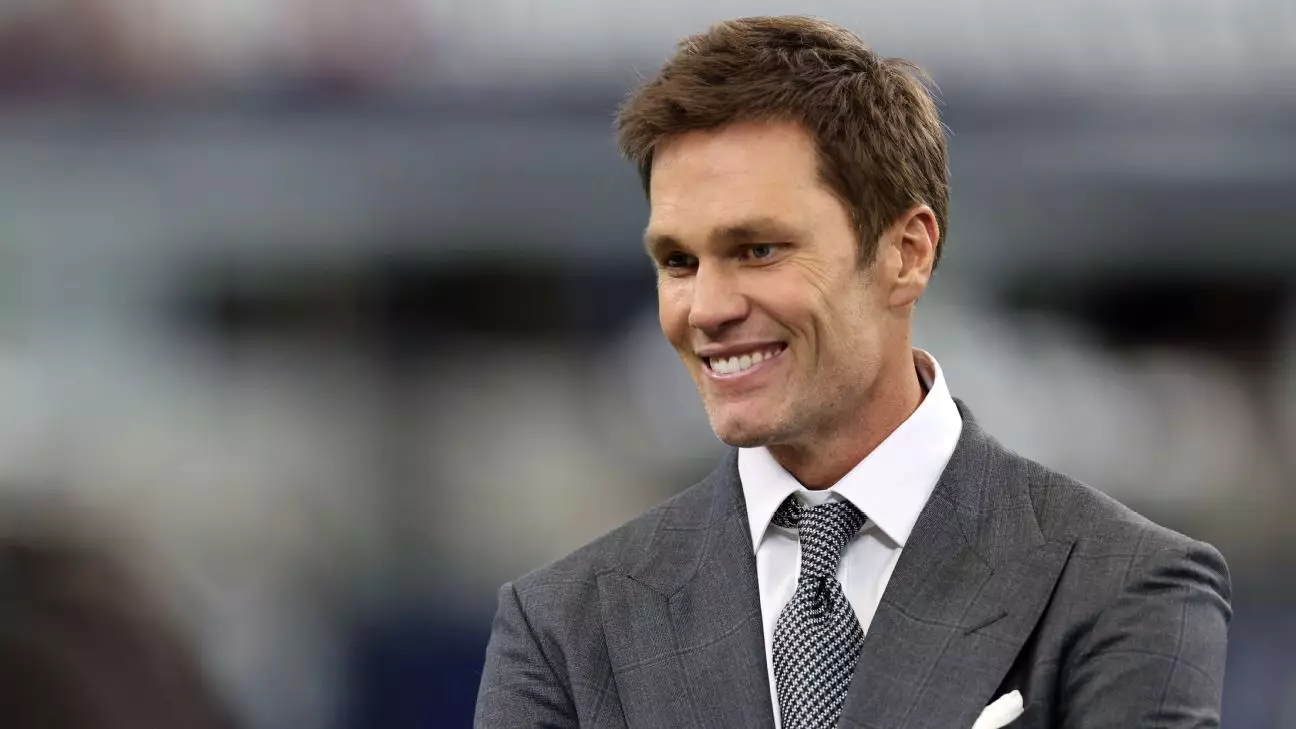In today’s sports universe, the allure of big personalities can often blur the line between transparent journalism and self-serving spectacle. The recent scenario involving Tom Brady’s dual roles as an NFL analyst and a minority team owner illuminates a critical ethical dilemma that sports fans, teams, and broadcasters tend to overlook. While the immediate concern, as voiced by some, revolves around the potential for competitive advantages, a deeper issue lies in the integrity of sports journalism and the fairness of the game itself.
Brady’s participation in production meetings with the Chicago Bears’ coaching staff prior to their game against the Dallas Cowboys exemplifies the increasingly porous boundaries that define modern sports enterprise. The fact that Brady is both an analyst and an owner creates a conflict of interest that threatens to undermine public trust. It raises the uncomfortable question: Should individuals with vested financial interests in teams be granted access that could influence the very narrative of the sport? This situation is emblematic of a broader trend where our admiration for celebrity athletes and sports figures often eclipses the need for ethical boundaries and accountability.
The league’s response—asserting that Brady’s sitting in a coach’s booth with a headset during a game is permissible—fails to address the underlying issue of perception and fairness. While the NFL may have policies designed to prevent outright cheating, they cannot deny the influence of such high-profile appearances on the sport’s credibility. Allowing a team owner to be visually prominent during a game, whether through commentary or simply by sitting in the booth, risks contaminating the integrity of the sporting event and the media spectacle surrounding it. Fans deserve transparency, not the illusion that ambivalent figures are just part of the background.
The Consequences of Welcome Mat for Conflict of Interest
The normalization of dual roles in sports—where players, coaches, owners, and media personalities wear multiple hats—undermines the essence of fair competition and honest journalism. When broadcasters like Brady mix analysis with personal stakes, the audience is left in a haze of doubt. The core of the problem isn’t just about one individual’s conduct, but about what it signifies for the sport’s governance and societal values.
Ben Johnson’s assertion that he is not worried about divulging strategic information is, at best, naive. This silence might serve as reassurance for now, but it ignores the subtle ways in which influence, even unintentional, can sway perceptions, morale, or even coaching strategies. The fact remains: Donning a headset in a coach’s booth, sitting in meetings with potential access to sensitive information, invites questions about favoritism and privilege. It blurs the lines that safeguard the competitive spirit and the impartiality that fans expect from their beloved sport.
This superficial reassurances from league officials and team personnel serve only to deepen public cynicism. In a time when transparency and fairness are core societal values, dismissing concerns of conflict of interest as mere “business as usual” is an abdication of moral responsibility. Sports are a reflection of community identity and virtues; permitting such overlaps without proper oversight risks eroding public confidence and diminishing the cultural significance of fair play.
The Reality Check: Power Dynamics and Responsible Stewardship
The bigger issue lies in the power dynamics that favor marquee personalities and wealthy owners. Their influence extends far beyond game-day performances, infiltrating narratives and shaping perceptions. This dynamic unbalances the ideals of meritocracy and fairness, subtly relegating merit-based competition to background noise before the spectacle itself.
By arrogantly dismissing the potential for conflicts, the league and sports organizations perpetuate a status quo that privileges wealth and fame over integrity. This approach fosters a sense of entitlement among powerful figures, stripping away the foundational ethics many fans and players hold dear. It sends a troubling message: that integrity is negotiable when entertainment and profit are at stake.
The sports community, especially those committed to progressive liberal values, should advocate for tighter regulations and clearer boundaries. The focus must shift towards safeguarding the sport’s integrity, not celebrating the spectacle of athletic celebrity. Athletes, owners, broadcasters, and officials share the responsibility to uphold standards that prioritize fairness over personal gain. Ignoring these issues risks transforming sports from a platform of hard-won achievement into a preordained game of influence and insider advantages.


Leave a Reply